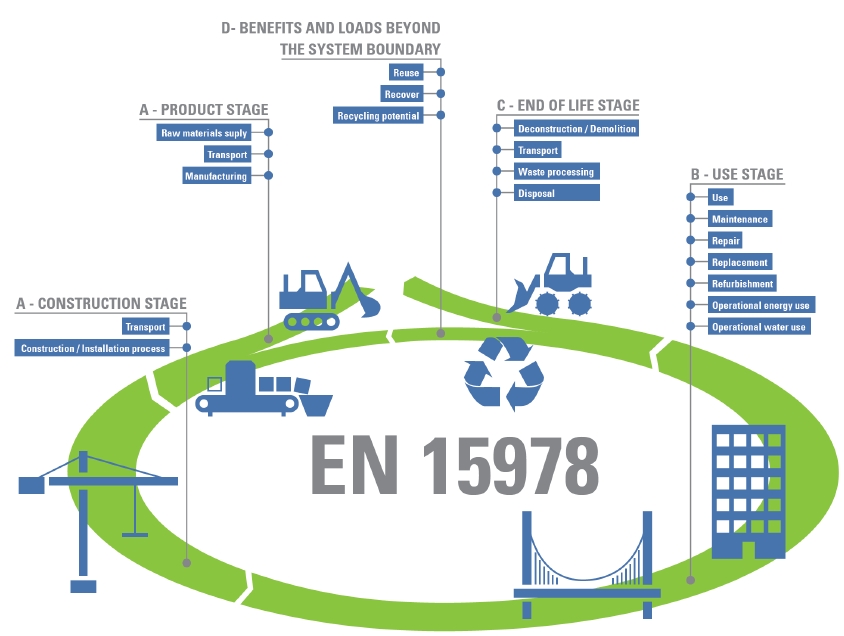Life Cycle Assessment
Within the construction field the level of “sustainability” is generally measured by looking at buildings. However, all details and information related to every single construction product are needed in order to evaluate the construction as a whole. Such data focus on the whole product life-cycle and analyze all kinds of impacts on the environment.
The Life-Cycle-Analysis (LCA) methodology focuses on the collection and evaluation of inputs, outputs and potential environmental impacts of a system of products during its whole life cycle. The life-cycle and measures all environmental impacts on production stages (raw material supply, transportation and manufacturing), construction processes (transportation, construction and installation), phases of use (operating tasks, maintenance, replacement, rehabilitation, use of energy and water during operations) and life-end phases (demolition, transportation, waste management and elimination). In technical terms we talk about a “Cradle to Crave” analysis in which all phases and aspects of environmental impact are analyzed from the moment the product is born until is dismissed.
On top of identifying the impact on the environment, such analysis allows technicians and customers to optimize the decision-making processes for the development of the final building. Currently the LCA methodology is used as a basis for the comparison of materials, components and services.





